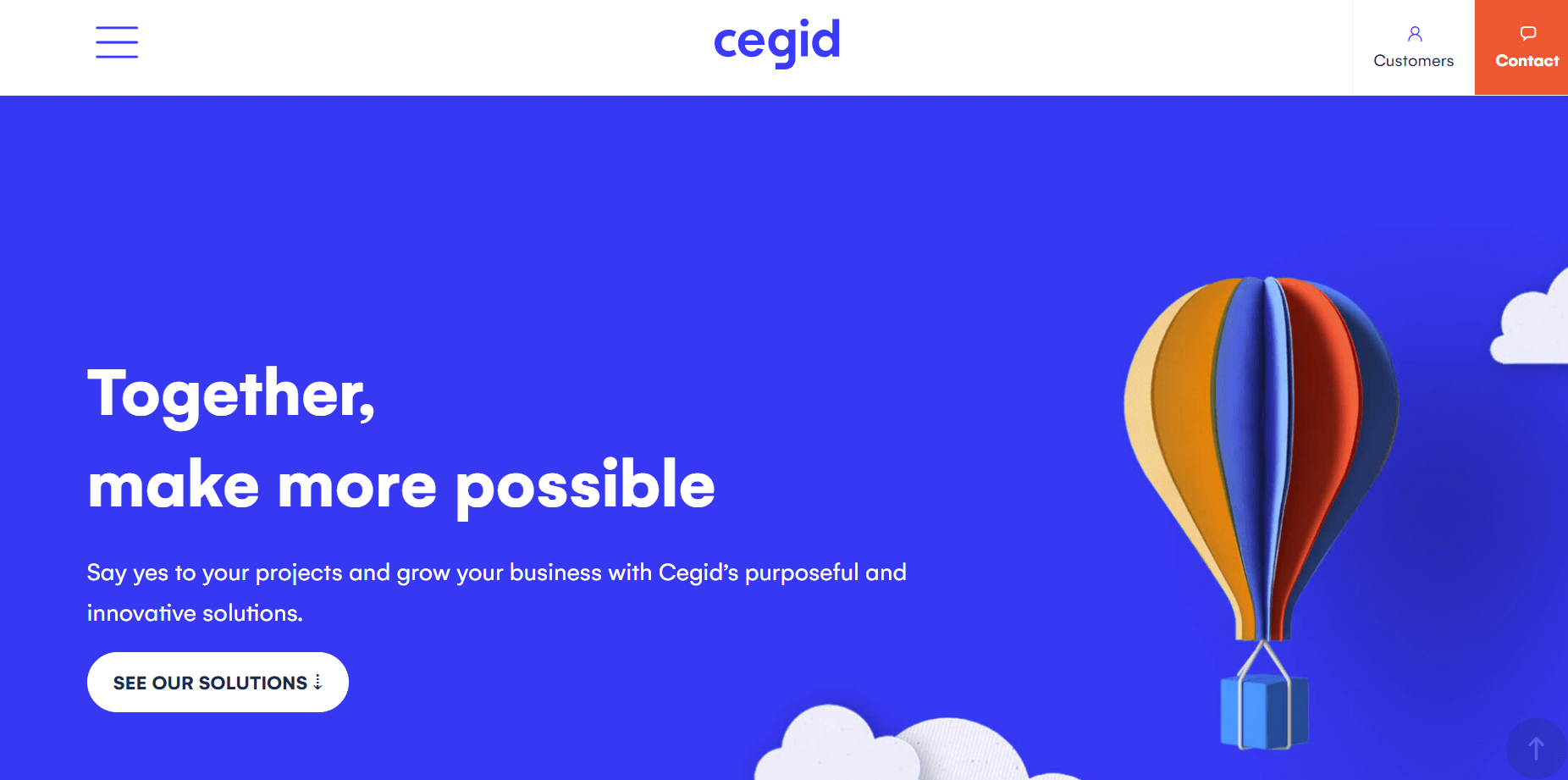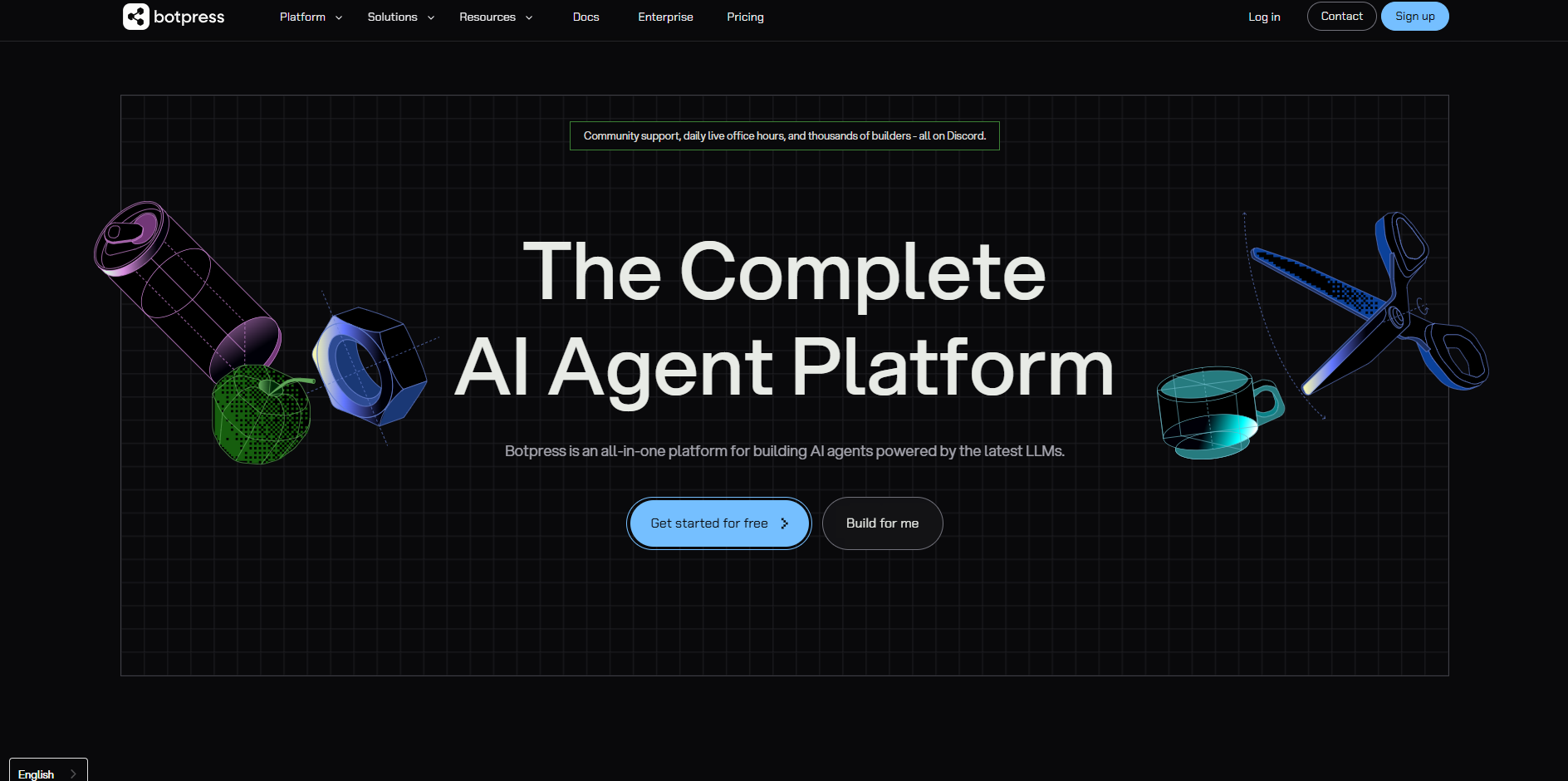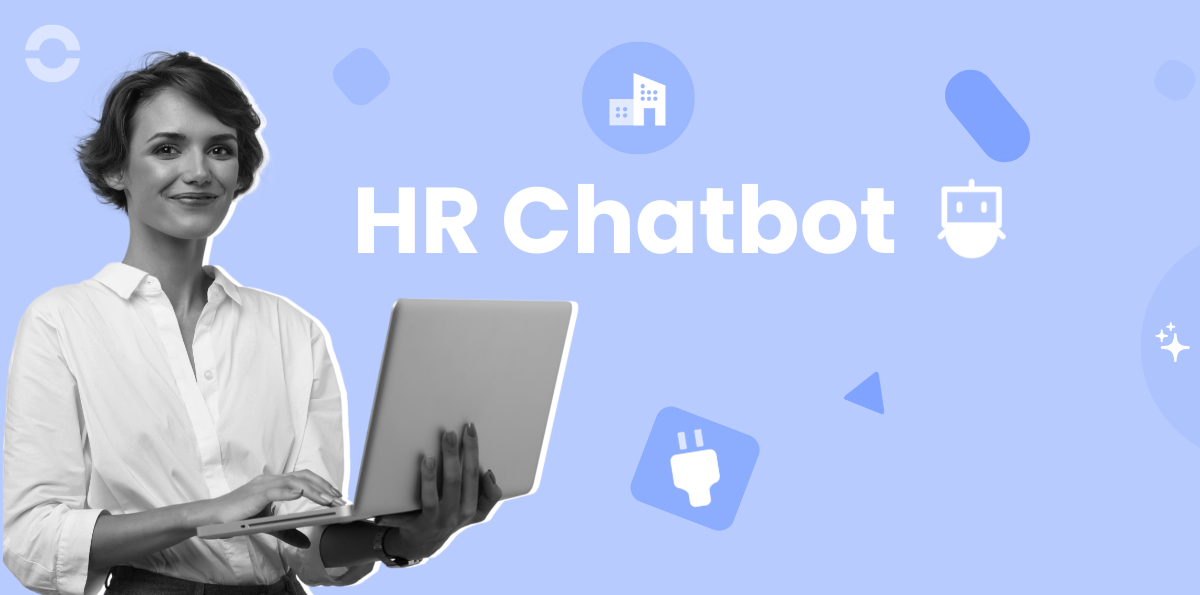Summary
As artificial intelligence becomes more widespread across organizations, human resources are also beginning to embrace this technology.
This shift goes far beyond the simple digitisation of administrative tasks. It represents a deeper transformation in how companies interact with employees and coordinate HR processes. At the heart of this evolution are HR chatbots—AI-powered conversational agents—gradually becoming essential allies.
What's their role? How do they work? How can they be implemented? And which are the best HR chatbots that meet the needs of French businesses?
Comparison Table: Best HR Chatbot Tools
| Solution | Positioning | Key Features |
|---|---|---|
| Ringover AI Assistant | Custom AI assistant focused on action | Advanced HR process automation, integration with internal data, customizable chatbot |
| Dydu | Adaptable conversational intelligence | Instant responses, tailored to company specifics, administrative task automation |
| Xor | Chatbot integrated into an HR ecosystem | Automates common tasks (custom questions, screening) |
| Cegid | Recruitment-focused HR chatbot | Digital HR front desk, candidate assistance, profile qualification, career site integration |
| Botnation AI | Flexible and customizable platform | Build custom HR assistants, integrates with Teams, Slack, or internal tools |
| Botpress | Open technical infrastructure for advanced AI | Can connect to internal databases, high customisation, developer-friendly |
What Is an HR Chatbot?
An HR chatbot—or virtual assistant for human resources—is an intelligent interface capable of naturally interacting with employees or candidates using natural language processing and machine learning.
In other words, it doesn't just follow a script—it analyses, understands, and learns. Thanks to NLP (Natural Language Processing), it can grasp the intent behind a request, even when phrased awkwardly—just like a human with some contextual awareness. This ability to converse in plain language and adapt responses to individual users is one of its key strengths.
Another often-overlooked aspect is the knowledge base the chatbot draws from. A reliable HR assistant is backed by a well-structured, regularly updated knowledge repository containing internal procedures, HR policies, and company-specific rules. Without this foundation, the tool would be hollow, limited in its usefulness.
The use cases are flexible. An employee can ask how to request time off, retrieve a payslip, or clarify steps in a performance review—all in just a few words. These interactions can happen via text, voice, mobile, or intranet. Regardless of the channel, the core promise is the same: fast, contextualised answers without overloading HR teams.
Behind the scenes, there's a clear goal: reduce admin burden, unclog internal communication channels, and allow HR professionals to focus on more strategic missions.
Which HR Tasks Can Be Automated with an Intelligent Assistant?
The introduction of AI into HR functions addresses a very practical need: reducing operational workload without compromising service quality for employees.
A well-configured chatbot can handle a surprisingly wide range of repetitive yet essential tasks. Here are a few examples:
Onboarding: Smooth Integration
As soon as a new hire joins, the chatbot can serve as a 24/7 point of contact. From collecting paperwork to sharing logistical info, it guides them through onboarding without requiring manual intervention from HR.
Leave & Absence: Simplified Management
One of the most common uses is managing time off. No more scattered forms or email chains—employees can request, check, or cancel leave directly through the chatbot. The system updates records in real time, requiring no extra effort.
Payroll: Answering Common Questions
From pay dates to variable components and adjustments, payroll queries are frequent. The chatbot can reliably respond using up-to-date data—reducing back-and-forth with HR and providing quick answers to employees.
Performance Monitoring: Greater Consistency
Evaluation cycles benefit from automation: reminders, scheduling reviews, and collecting feedback can all be handled by the chatbot. This keeps managers and HR on schedule without compromising the human side of feedback.
Internal Surveys & Social Climate Monitoring
Periodically, the chatbot can discreetly survey team morale, perceived workload, and expectations. Even brief feedback helps anticipate tension points and adjust practices—if the insights are properly analyzed.
Training: Personalised Support
For skill development, the chatbot acts as a facilitator—recommending modules tailored to each employee, tracking progress, and issuing reminders. It helps embed training into everyday work without turning it into a burden.
Internal Communication: Clear & Scalable
When a new HR policy launches or company-wide changes occur, the chatbot can broadcast information accurately and at scale—minimising misunderstandings and keeping communication flowing without flooding inboxes.
Recruitment: Streamlined Pre-Screening
In early hiring phases, the chatbot can screen applicants, answer role-related questions, and guide candidates through next steps. It doesn't replace recruiters—but it filters, directs, and prepares—saving precious time during busy periods.
Overview of Top HR Chatbot Solutions
The French market for HR-focused conversational assistants is both rich and diverse. Each platform has its own approach, balancing customisation, automation, and system integration in different ways. Here's a representative, though non-exhaustive, look at six standout tools:
1. Ringover's Conversational AI Assistant
Ringover, already well known for its business phone system and its conversational AI, offers an AI Assistant that doesn't just answer—it takes action. This solution lets you build a fully customised chatbot powered by your company's own data, making it capable of automating and optimising a wide range of HR processes, like those described above.
2. Dydu

At Dydu, conversational intelligence is shaped around each company's specific needs. The tool automates administrative tasks and provides consistent, instant responses.
3. Xor

Xor is designed for companies aiming to make their HR processes more efficient. Its chatbot can automatically screen and score candidates, automatically scheduling interviews. As a result, recruiters have relevant candidates lined up.
4. Cegid

Cegid's chatbot acts as a digital HR front desk focused on recruitment. It's not meant to replace your team but to enhance it. Integrated into your careers site, it supports candidates and can even qualify top profiles.
5. Botnation AI

Botnation AI caters to companies seeking flexibility. The platform lets you create fully customised HR assistants with integration options for Teams, Slack, or in-house tools.
6. Botpress – The Unlimited Augmented AI Agent

Botpress takes a different approach. While more technical, it's incredibly powerful—offering an open infrastructure that allows you to connect a chatbot to any internal database or system.
How to Choose the Right HR Chatbot for Your Company
Not all businesses have the same needs when it comes to HR automation—and that's a good thing. The best chatbot is the one tailored to your specific requirements, not the one that promises everything indiscriminately. Here are some guidelines to help refine your selection:
🎯 Get Clear on What You Really Need
Before comparing tools, ask the right questions: What HR processes do you want to automate? What recurring questions do your teams receive? Is it to streamline onboarding, improve internal communication, or ease the payroll team's load? With a clear vision of your priorities, you'll avoid being lured by flashy features that don't actually serve your needs.
🔌 Check for Technical Compatibility
Even the best chatbot is useless if it can't interact with your systems. Make sure the solution integrates easily with your existing HR tools (HRIS, ATS, LMS, etc.) and communication platforms like Slack, Teams, or your intranet. The more native or easy-to-set-up the connections are, the quicker and more cost-effective the implementation will be.
⚙️ Choose a Truly Customizable Solution
Every company has its own vocabulary, culture, and use cases. A good HR assistant should reflect that uniqueness: tailored answers, adjusted tone, and specific conversation flows. But it's not just about configuring the tool—check whether it can learn, adapt, and improve over time. That's what separates a useful chatbot from just another interactive form.
🌍 Think Multilingual If Necessary
If your teams are spread across different countries or you hire internationally, multilingual support is essential—not a luxury. It ensures a consistent experience for all your employees and candidates, no matter where they're based.
🔐 Don't Compromise on Security
HR data is inherently sensitive. Make sure the solution is fully GDPR-compliant and provides clear safeguards for personal data (encryption, fine-grained access control, secure hosting, etc.). A trustworthy provider will be transparent on these points—and it's a strong indicator of their professionalism.
🛠️ Look Behind the Tool
A chatbot isn't just a “plug-and-play” product. It requires deployment, training, and ongoing support. Find out about the quality of the provider's onboarding, the availability of their support team, and how often the tool is updated. A solid HR partner isn't just a technical vendor—they're a long-term ally.
📈 Plan Ahead
Your company will grow—and your needs will evolve. The chatbot you choose today must be able to scale with you: more users, more complex requests, new tools to integrate. Thinking long-term ensures a better return on investment from day one.
Ready to Build Your HR Chatbot?
Chatbots are gradually integrating into the daily workflows of HR teams, with the promise of improving employee (and candidate) experience by reducing operational pressure.
The real challenge isn't choosing the most “powerful” tool—a term that's often overused—but rather finding one that fits your specific reality: technical setup, internal processes, frontline usage, and even cultural nuances. The goal is for your chatbot to be more than a gimmick—something genuinely useful, in the right place, at the right time.
If you're exploring a smart assistant that's flexible, quick to deploy, and built to evolve seamlessly with your needs, reach out to our AI experts today. You'll be able to design a solution that aligns perfectly with how your teams work.
FAQ: HR Chatbots
What Can an HR Chatbot Do?
An HR chatbot can perform many tasks to simplify and optimise HR management. Examples include:
- Answering frequently asked employee questions about pay, time off, and company policies.
- Managing onboarding by guiding new hires through every step of the integration process.
- Automating leave and absence management by recording requests and approvals automatically.
- Organising and tracking training programs and performance reviews.
- Gathering employee feedback and monitoring morale through surveys and polls.
How Much Does an HR Chatbot Cost?
The cost of an HR chatbot depends on several factors, including solution complexity, available features, and the provider. Consider the following:
- Basic, pre-configured solutions are generally affordable, with monthly or yearly subscription models.
- Customised solutions integrated with your existing systems tend to be more expensive, with higher upfront costs and ongoing maintenance fees.
Don't forget indirect costs like team training and technical support.
What Is the Best HR Chatbot?
The best HR chatbot depends on your company's specific needs. Here are a few criteria to consider:
- Make sure the features match your key requirements, like leave management, onboarding, or training.
- Check how easily the solution integrates with your existing systems.
- Review user feedback and testimonials to gauge overall satisfaction and performance.
How Do You Measure the Effectiveness of an HR Chatbot?
Evaluating your HR chatbot's effectiveness is essential for understanding its impact. Key metrics include:
- Resolution Rate: Percentage of inquiries resolved by the chatbot without human intervention.
- Employee Satisfaction: Survey employees to measure satisfaction with the chatbot's speed and accuracy.
- Time Saved for HR Teams: Assess the time saved through automation of repetitive tasks.
- Data Insights: Analyse chatbot-collected data to spot trends and identify areas for HR process improvement.
Published on July 22, 2025.


